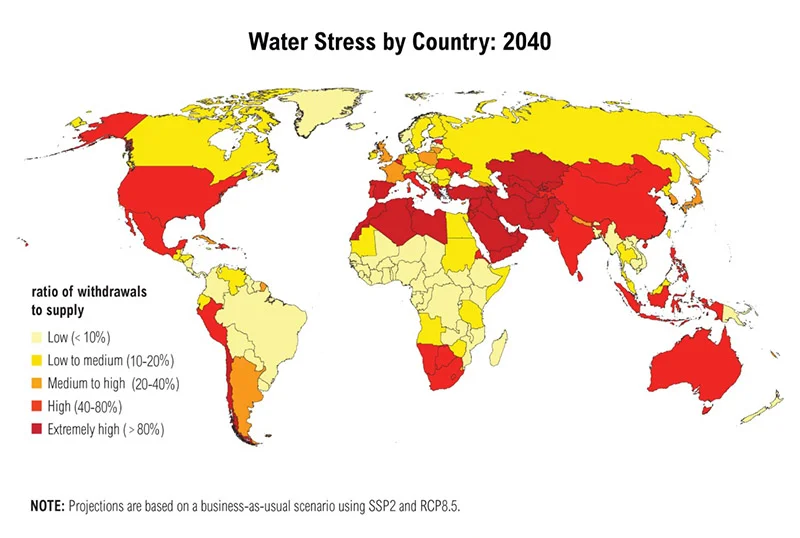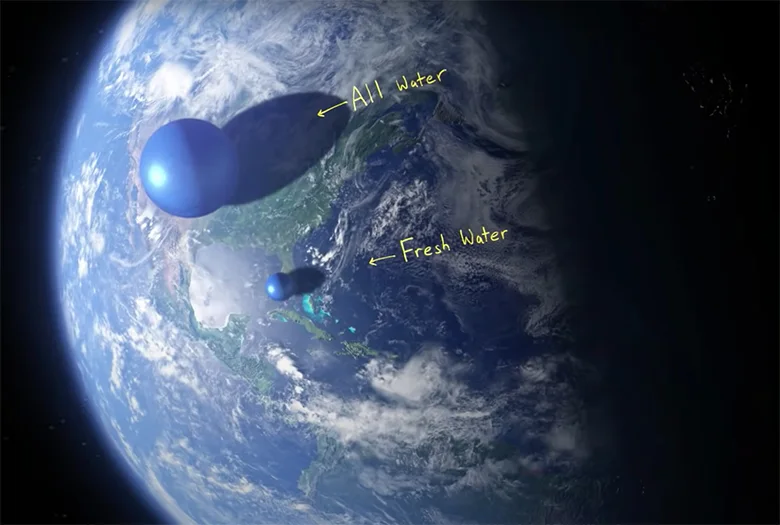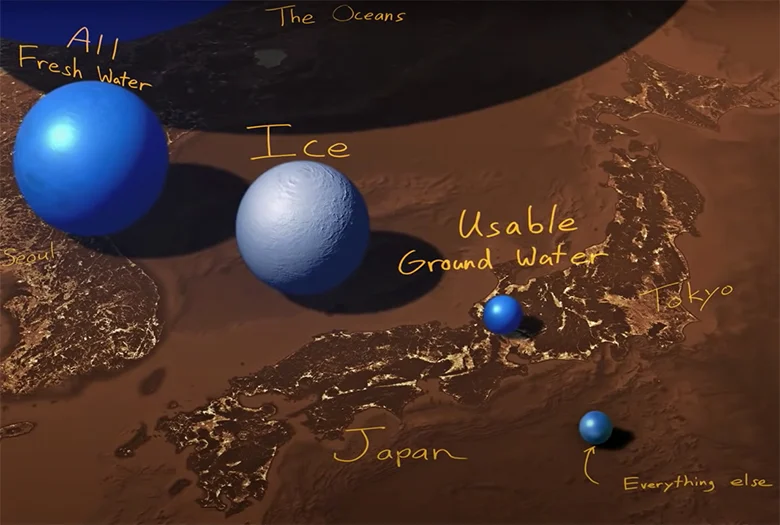Why recycle
Water is not a developing-world problem. It's an everyone, everywhere problem. And it's one of the most pressing issues of our time.
Our wastewater thrown in the sewage goes into the rivers and oceans and comes back as rainfall. This is the only way our planet can renew freshwater. But that’s a rhythm. And we consume much faster than nature can reproduce.
By 2040 40% of the global population will live in «water-stressed» areas. After decades of intensive urbanisation, deforestation, industrialisation, and farming, there won’t be enough drinking water available for all of us.
What happens when society fails to invest in the water infrastructure or to adopt innovative technologies, modernise policies, regulations, and governance?

We get ever closer to “day zeros” - the point when municipal water supplies are switched off - and tragedies such as Flint (USA). These are not isolated stories. Instead, they are becoming routine, and the public sector and civil society are scrambling to address them.
“Day zero” is the result of water planning by looking in the rear-view mirror. The past is no longer a guide to the future.
The average 4 members family uses over 75 thousand liters of water monthly directly at home and over 36 thousand indirectly. That wouldn’t be the problem if water, which covers 70% of our Planet, would be drinkable. But it’s not. 99% of Earths’ water is unusable or unavailable and only 0.3% is fresh drinking available water.


Today the selective urban waste collection is no longer disputed as a means towards recycling our waste. And yet we don’t realize that our «all-to-the-sewer» sanitation system follows the same «all trash to the garbage» logic. Its consequences, however, are more grievous because the current system threatens even global food production for future generations, not just freshwater reserves or environmental pollution.
Even when dirty water is removed, it remains dirty, wherever you remove it to: thus, our rivers are being polluted. Discharging regulatory-compliant wastewater into a natural aquatic system is extremely harmful. The quality of our groundwater reserves has continued to deteriorate, they are already contaminated with nitrates. Similarly, the average quality of our rivers has continued to fall, even if there have been improvements locally.
Existing wastewater treatment is the root of our water problems worldwide, and indirectly of climate change. All-mains sewerage is a suicidal activity, on a world scale.
Selective treatment of greywater protects water bodies and the environment well beyond what a conventional sanitation system (including phytopurification systems) can or will probably ever do. It opens the way to a world where dwellings will no longer pollute natural water bodies.
Water is not a cheap resource and wastewater is not disposable.
We need to evolve from the old way of using water to a circular way. What nature does globally – do it at home.
Our greywater recycling systems collect the water you’ve used in your sinks, dishwashers, showers, and
baths,
and then clean it up and plumb it straight back into your toilet, washing machine, and outside tap.
Qlnz reduces families' municipal water usage by 90% with a similar reduction in your water bill.
We have no choice but to change it right now.

